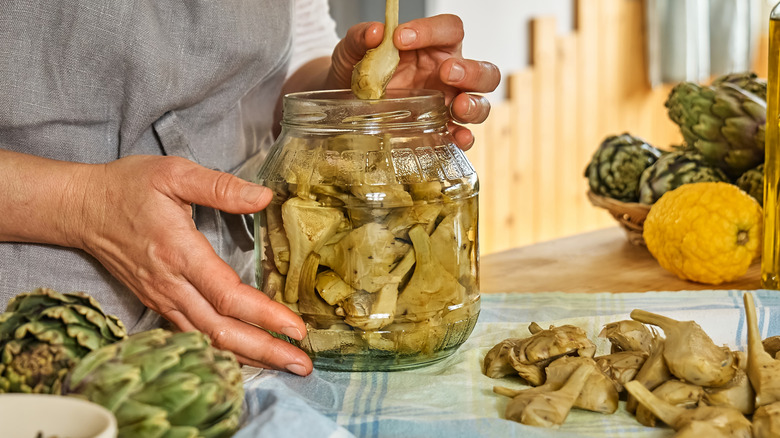
Antioxidants are crucial for maintaining your overall health. These nutrients safeguard your cells by counteracting the harm caused by free radicals, which are detrimental molecules that can contribute to conditions ranging from cancer and cardiovascular disease to digestive and neurological issues. Consuming a diet rich in antioxidants can help reduce their effects and promote good health.
While many foods are rich in antioxidants, blueberries are often regarded as one of the best options. They offer numerous health benefits when consumed daily, but if you’re focusing solely on increasing antioxidant intake, artichokes actually surpass blueberries. Unlike fruits, artichokes contain a powerful antioxidant known as chlorogenic acid.
With their distinctive, thick outer bracts resembling puffy leaves, artichokes are often mistaken for vegetables. However, the edible part is actually a flower bud of a thistle plant, rich in flavor and antioxidants. You can eat the entire thing. Registered dietitian Beth Czerwony, RD, LD, tells Cleveland Clinic, “Artichoke hearts are soft and meaty. But the plant’s petals and stems are equally tasty and nutritious.”
Artichokes are packed with health benefits

Chlorogenic acids distinguish artichokes from other antioxidant-rich foods. Ildi Revi, the Chief Coffee Officer at Purity Organic Coffee, explains to First, “They represent an abundant group of plant polyphenols present in many foods and beverages in the human diet, including coffee and tea, as well as several fruits and vegetables.” Chlorogenic acid can be highly beneficial to overall health, shielding you from harmful free radicals while managing blood sugar levels.
The chlorogenic acid in artichokes also acts as a strong anti-inflammatory, according to 2022 research in BioMed Research International. Furthermore, the rich flavonoid content in artichokes (mainly found in the head and leaves) adds to these effects, defending the body against oxidative stress that could cause cellular damage.
Another reason artichokes are considered a superfood is their protein content: A single artichoke has nearly 5 grams. Additionally, artichokes contain the soluble fiber inulin, which enhances satiety and helps prevent blood sugar spikes and overeating. For this reason, this high-protein vegetable can aid in regular bowel movements.
Artichokes may even help improve sleep quality. A single medium artichoke contains 77 milligrams of magnesium, or 18% of your daily value. Magnesium plays a crucial role in muscle relaxation, which can help you unwind at night.
How to eat artichokes

There are numerous ways to enjoy artichokes, from traditional preparations to more modern variations. Pickled artichokes, for instance, offer a tangy, briny flavor that pairs well with salads, antipasto platters, or even straight from the jar. To maximize its health benefits, consider this: 2008 research published in the Journal of Agricultural and Food Chemistry found that both steaming and boiling the plant increased its antioxidant capacity.
This may be because cooking methods soften the artichoke’s structure, making the beneficial compounds more bioavailable to your body. However, the same research showed a decrease in flavonoids. That’s why it’s smart to vary your cooking methods. You can roast artichokes to caramelize them, steam them for a softer texture with a nutty bite, or even shave them raw over a salad for a protein and flavonoid boost.
This varied approach keeps things exciting, allowing you to enjoy artichokes’ full health benefits while savoring its unique flavor and texture in different ways.




